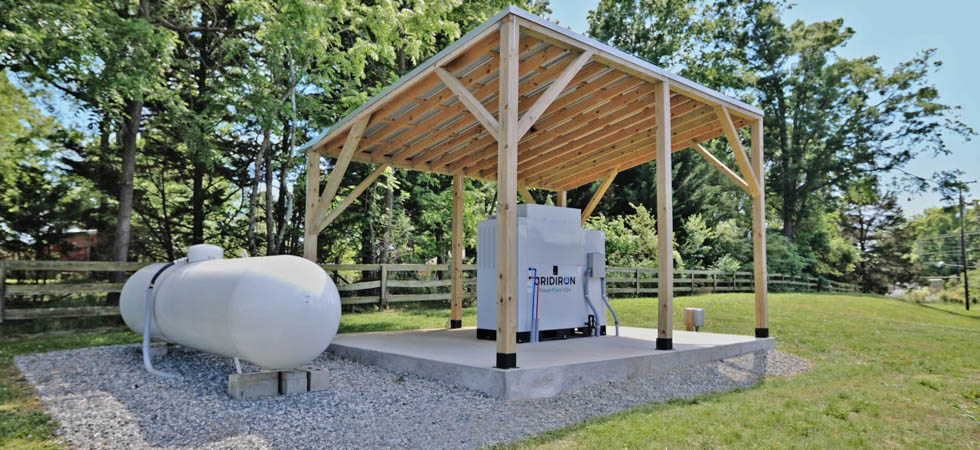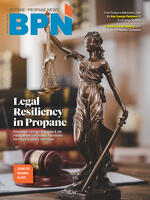
How can propane marketers create new opportunities for propane growth?
Reliable energy is a top priority for businesses in critical sectors. Frequent power outages, a strained electrical grid and the increased risk of natural disasters have made it clear that our infrastructure may no longer be able to meet today’s demands.
Industries like health care, senior care, food service, hospitality, higher education, multifamily housing and manufacturing all depend on reliable access to power — not only for safety, but because it can seriously impact a business’s bottom line. For the first time, United States infrastructure received a C grade on the 2025 American Society of Civil Engineers (ASCE) report card. In 2024 alone, the U.S. experienced 27 billion-dollar disasters, resulting in more than $182 billion in damages.
In addition, a recent Department of Energy report, “Evaluating the Reliability and Security of the United States Electric Grid,” warns that some regions of the U.S. could face more than 800 hours of power outages annually by 2030. That’s more than 33 days of downtime in a single year for businesses that are reliant on uninterrupted operations.
These challenges have commercial businesses searching for technology and energy solutions that are reliable, affordable and readily available — solutions that propane marketers are well-equipped to provide.
Proven Technologies to Boost Resilience & Efficiency
Propane marketers play a critical role in educating commercial customers on proven technologies that can support their energy goals, lower costs and improve resiliency. Two promising systems gaining traction in the commercial space are combined heat and power (CHP) and propane-powered cooling technologies. CHP systems generate electricity while capturing waste heat to power additional applications such as space heating, hot water, cooking, sterilization, laundry and more. CHP units work independently from the grid and are not impacted by widespread power outages, ensuring year-round reliability.
Propane-powered cooling systems are another powerful tool for resilience. Typically used for comfort conditioning, dehumidification, medium-temperature refrigeration and high ambient cooling, propane cooling is ideal for customers looking to reduce grid reliance and peak electricity charges.
By educating original equipment manufacturers (OEMs), engineers, building owners and facility managers about these systems, propane marketers can position themselves as strategic energy partners, opening the door to year-round gallon sales, especially in energy-sensitive industries.
Top Sectors in Need of Resilient Energy
The need for reliable energy is urgent in industries where downtime can put lives, businesses and comfort at risk. In health care, facilities can’t afford power interruptions. Outages disrupt patient care, medical refrigeration, electronic records and emergency services. With CHP systems, these facilities have energy security and increased efficiency.
Similarly, guests and residents at hotels and multifamily properties expect hot water, lighting, climate control and Wi-Fi. An outage can damage reputations and result in a loss of revenue — but with CHPs, building owners can take control over their energy supply and deliver on all those amenities without compromising on cost.
Restaurants, grocery stores and food processors are especially vulnerable. From refrigeration and cooking to HVAC and lighting, these businesses require 24/7 reliability. According to a National Restaurant Association report, more than 60% of operators said energy and utility costs have become a significant challenge for their restaurant.
“The way we’re looking at this is to make a profit center out of our boiler room instead of it being a cost center,” said Anders Thorson, U.S. market manager at EC Power Inc. “The end users are going to save a ton of money by installing a CHP unit, all while reducing emissions.”
Propane marketers have an opportunity to address these sector-specific challenges by offering solutions that deliver value to today’s most energy-sensitive markets.
The Real Cost of Efficiency
Energy-resilient applications have a strong track record of delivering an impressive return on investment. The ASCE noted that every dollar invested in resiliency produces $13 in avoided recovery expenses, according to its 2024 economic analysis. CHP systems, which achieve efficiencies of more than 80%, along with resilient propane cooling systems, offer a compelling investment for commercial customers. That’s why more than half of U.S. states now recognize CHPs as part of their Portfolio Standards or their Energy Efficiency Resource Standards.
Still, the U.S. has yet to fully capitalize on these advantages. The Environmental and Energy Study Institute has shared that the amount of energy lost in wasted heat in the U.S. exceeds the total amount of energy used in Japan. Despite the clear benefits of CHP systems, they remain underutilized in the U.S., largely due to a lack of industry awareness, while many European countries have embraced the technology through more proactive education and support.
Efficient technology depends not only on energy output, but also on fuel availability and long-term performance. Propane marketers can reassure customers that propane is a stable, domestic energy source. Nearly 90% of U.S. propane supply is produced domestically, making it less susceptible to international disruptions or unexpected tariffs that often impact other fuels. Propane’s portability means it can be delivered virtually anywhere, even in emergencies, and unlike diesel, it won’t degrade over time. As a result, propane systems are always ready to operate with lower maintenance and no risk of fuel degradation. In a CHP system or cooling application, that reliability gives businesses peace of mind.
The First Step to Growing Gallons
Propane marketers looking to grow their gallons should start by identifying commercial accounts that operate year-round and rely heavily on heat or cooling. Think about the health care, hospitality, multifamily, food service and manufacturing customers in the community. From there, work with OEM partners to build a plan on how to successfully connect with those decision-makers. Many OEM partners offer full-service support from design to installation and maintenance, allowing marketers to bring more to the table when connecting with prospects in the area.
Superior Plus Propane is already putting this strategy into action by collaborating with OEMs and expanding its portfolio of energy solutions.
“For me, this whole CHP thing is relatively new as of the last couple of months, but folks like Anders and his team have really helped us get familiar with it,” said Dom Splendore, senior manager of marketing at Superior Plus Propane. “Right now, we’re working on identifying the right people. We’ve got a couple of folks looking into this and a list of customers who might be the best to engage with.”
To support these efforts, the Propane Education & Research Council (PERC) is helping propane marketers build strong relationships with prospects to adopt reliable, efficient and sustainable propane-powered systems. Programs like the Alternative Technology Demonstration & Research Program were developed with that in mind. Commercial and industrial building owners can now alleviate some of the upfront building or retrofit costs by receiving up to $30,000 for CHP projects and $300 per ton for propane-powered cooling systems. In return, participants share data on the overall performance, emissions, fuel usage and cost savings of the project. That data helps strengthen OEM partnerships, supports new technology development and expands the propane industry’s collective impact


